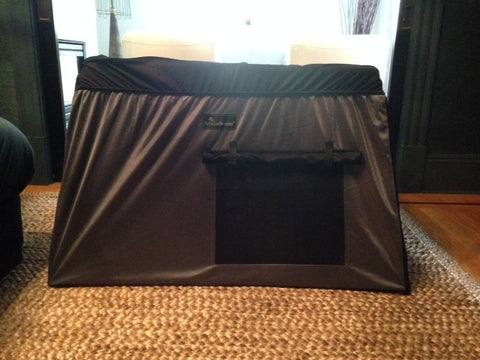Baby sleep tips for 6-9 months
You made it through the first six months, you might even have got a great sleep routine going but before you know it there will be some sleep regression on the horizon for any number of reasons. There are however some specific ways to tackle sleep for a baby from six months to nine months and we asked some very knowledgeable sleep consultants for their advice who specialise in helping families get sleep routines cracked! So over to them for some sleep tips...
At around the age of six months you may be at the beginning of your weaning journey, or well established- but with this comes a worldwide misconception that your little one will start sleeping through. In fact, studies show that waking in the night for a feed is quite normal right up until 18 months So try not to pin all your hopes on this alone. If your little one is still waking frequently ensure their day time naps are appropriate and well timed, and that they are adequately stimulated and exercised during the day leading up to a bedtime routine that supports healthy sleep hygiene. Bedtime may need to be adjusted depending on previous nap, if they’re attending nursery or if they’re chronic early risers for example. (Top tip: Later bedtimes will not improve early waking! Early rising is often a manifestation of a sleep debt)
Fern from thebigsleepco.co.uk
Consistency is key so try and keep to the same routine as much as possible, so your baby knows what to expect. Do the Bedtime feed at the beginning of the bedtime routine so you can put your baby down wide awake. Aim for two naps a day at approx 9am and 2pm with bedtime around 7pm.
Shan at Jammytime.com
Most 9-month-olds can sleep all night without a feeding and take two naps per day. However, some babies, in my experience, do better with one feeding after 4 or 5 in the morning, and will then sleep longer than if they don't eat and wake up early.
See a sleep schedule for 9 month old babies at The Baby Sleep Site

Darkness is an important factor in the quality of our night time sleep. The reduction in light cues our Melatonin production that helps us fall asleep quickly and stay asleep through the night. Make sure your baby's room is very dark at bedtime will help her fall asleep and lead to longer stretches in the night. Using a SnoozeShade on your cot or travel cot will help to create a dark environment for your baby.
Dana from Sleepsense.net




